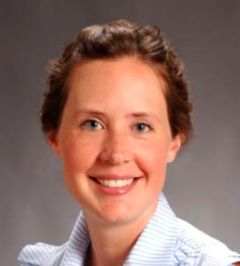From the 10/16/2020 newsletter
Grand Rounds Wrap-Up
Registering New Voters in the Emergency Department: A Virtual Session with Dr. Alister Martin from VotER
Megan Quamme, MCW-Milwaukee Medical Student
“Are you registered to vote? Would you like to do that while you are here today?” These are two questions that physicians can ask every patient, according to Dr. Alister Martin, an emergency medicine physician at Massachusetts General Hospital and founder of VotER.
Where VotER began
Dr. Martin started the non-partisan organization VotER to make it easier for his patients to register. He first had this idea as a resident working in the Pediatric ED. Dr. Martin was caring for two pediatric patients who had come into the Emergency Department with their mother because they were homeless, new to the area, and living in a car. When trying to get the family shelter for the night, Dr. Martin learned from a social worker that the patients’ mother would only be eligible for a spot at a homeless shelter if she could claim residency in the state. The easiest and fastest way to claim residency was by registering to vote. Dr. Martin had never realized that physicians could register patients to vote at the hospital.
Nationwide impact
Fast forward to 2020, and VotER is now active in over 200 hospitals across the US, supplying medical providers with QR codes, lanyards, posters, and badges that link patients to voter registration resources in their state. (Originally, voter registration kiosks were set up in ED waiting rooms that patients were free to use... and then, unfortunately, COVID hit, so the organization switched gears to touchless registration strategies.)
How we can help
Dr. Martin had a few tips for providers looking to encourage patients to register to vote. First, he recommended updating each of our email signatures to provide information for voting registration/absentee voting. Doing just that will guarantee at least one or two people to get registered. His second suggestion was to add questions about voting registration and having a safe voting plan to your Social History. To help with this, you can always direct patients to www.myvote.wi.gov where they can find state-specific information about polling sites, early voting and absentee voting. The last suggestion was to hang signage with voter registration information in public waiting areas where all patients can see them. This year, during the COVID pandemic, you may want to add some extra recommendations: it is safest for your patients to vote by mail or vote early (with a mask) rather than in-person on Election day.
The big take-away from this talk is that voting is closely tied to healthcare. Making voting safe and straightforward for our patients is another service we can provide as medical providers. Registering to vote is non-partisan and is an important way to participate in our democracy. By encouraging our patients to participate in elections and thus health policy decisions, we are also caring for their physical, emotional, mental, and occupational health.
Megan Quamme is an MD candidate in the MCW- Milwaukee Class of 2023.



